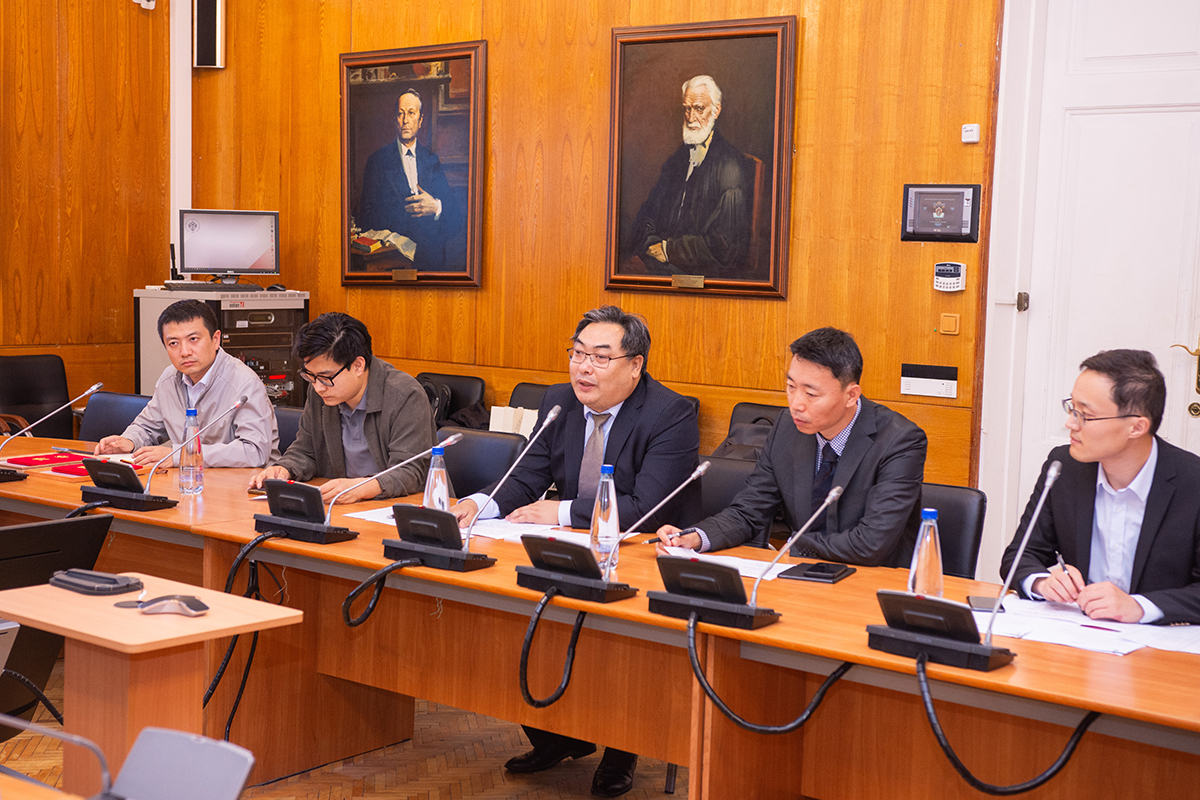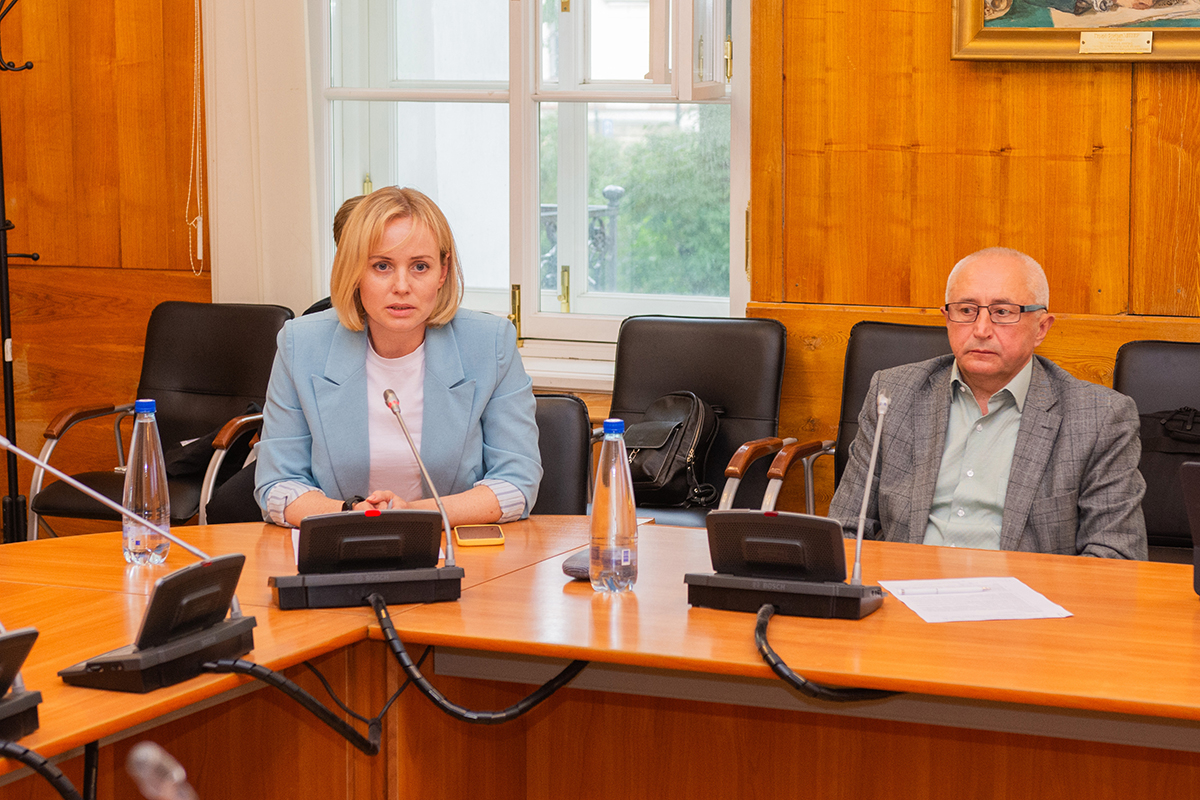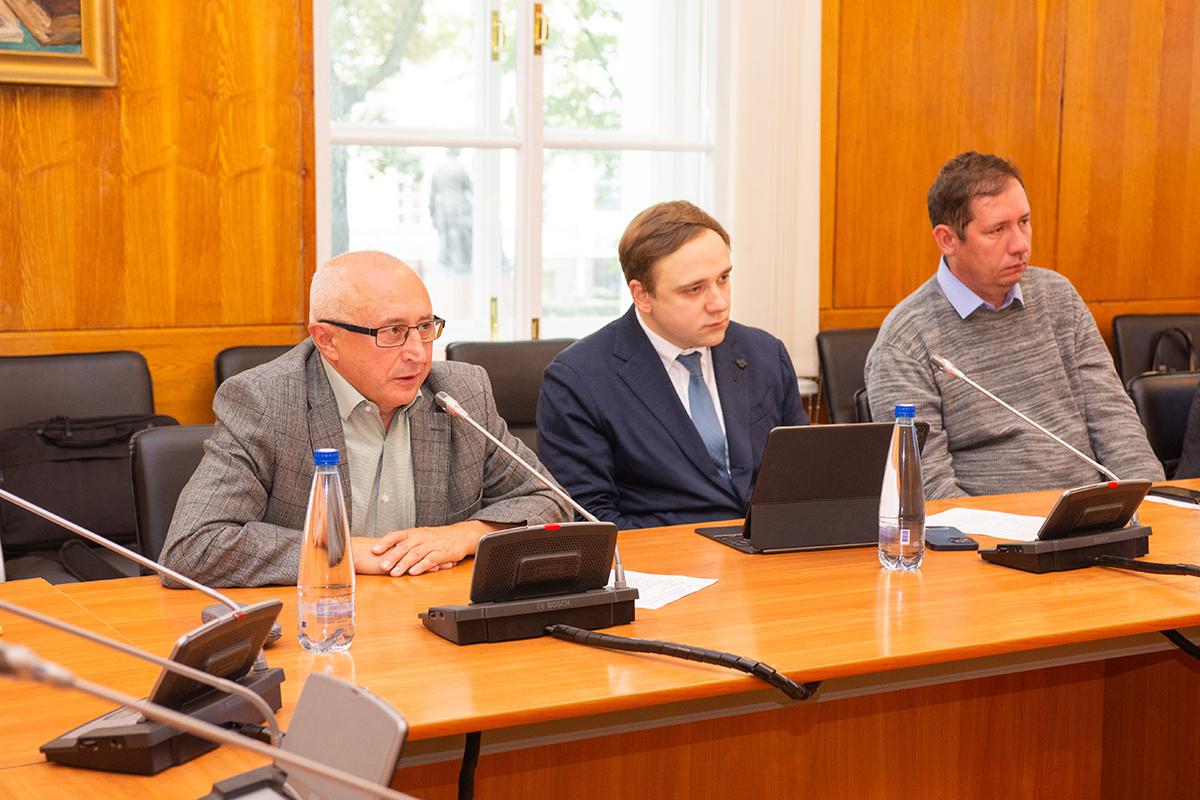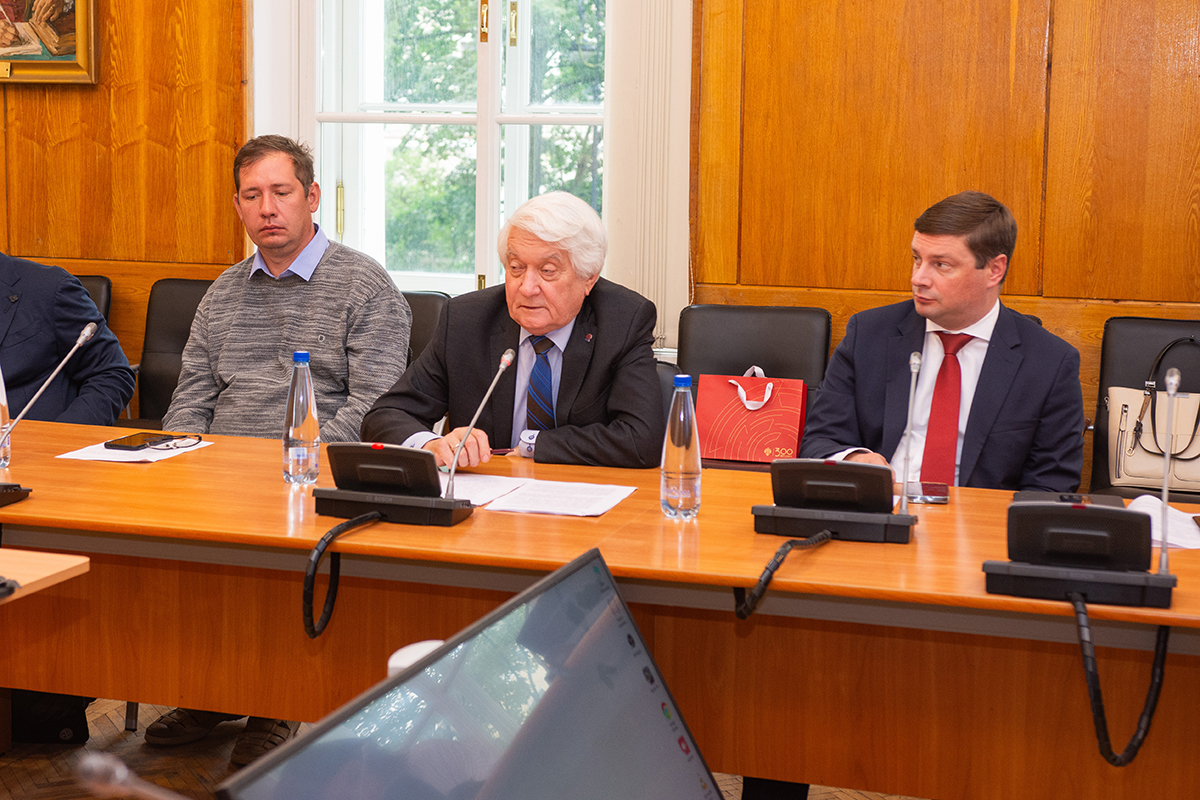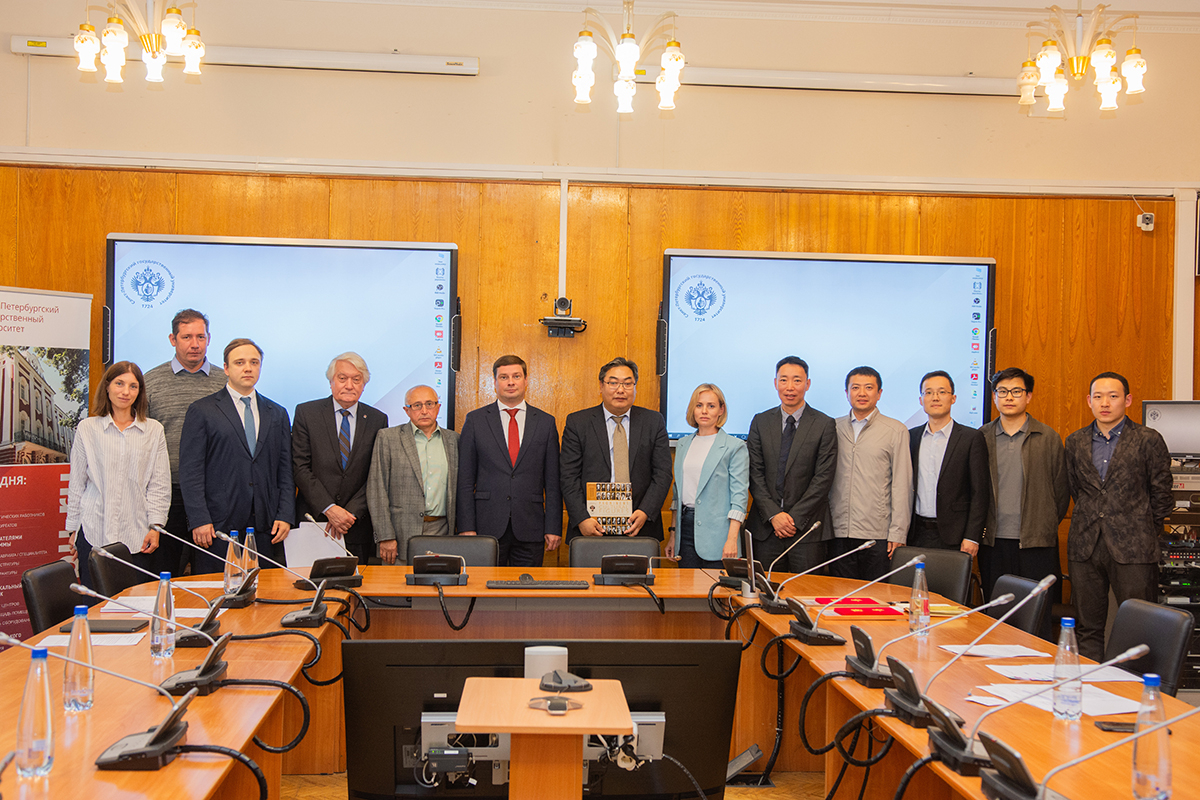Collaboration with agronomists from China discussed at St Petersburg University
A delegation from the Chinese Academy of Agricultural Sciences, led by Wang Xudong, Director General of the Academy’s Strategic Research Centre and Deputy Director of the Institute of Food and Nutrition Development, has visited the University. The parties discussed the joint development of methods to ensure the safety of agriculture.
Sergey Andryushin, Vice‑Rector for International Affairs, welcomed the guests and stressed the importance of joint promising projects. ‘Within the framework of our interaction, we will be able to understand the potential of our cooperation, and I am sure that through joint efforts we will be able to implement many interesting projects,’ said Sergey Andryushin, Vice‑Rector for International Affairs.
Continuing the theme of possible cooperation, Igor Tikhonovich, Dean of the Faculty of Biology at St Petersburg University, spoke about the development of the Agrotechnologies of the Future project, which aims to create innovations of the same name and focuses on the use of genetic resources. Professor Tikhonovich explained that many plants that support the country’s food security need partners, and microbes can act as their helpers. In this context, Igor Tikhonovich suggested including microbial‑plant systems in the strategic plans for joint research development. Wang Xudong supported the idea of directing cooperation in this area.
Our Academy brings together scientific and technological resources from around the world to conduct new agricultural research. And we are interested in your proposal, which we hope to implement after further discussion.
Wang Xudong, Director General of the Strategic Research Centre of the Chinese Academy of Agricultural Sciences
During the meeting, Viktor Titov, Vice‑Rector for Operations Support of the G.O.R.K.I. Centre, the Centre for Econometrics and Business Analytics, the Laboratory of Asian Economic Studies and the Laboratory of Modern Financial Technologies, spoke about the University’s research into promising technologies for creating climate projects in agriculture and forestry. The aim is to develop approaches and methodologies for monitoring and managing components of carbon cycle systems. Another important project in this area is the study of the development strategy for carbon‑intensive sectors of the economy in the context of import substitution industrialisation and implementation of innovative developments in the field of decarbonisation technologies.
Sergei Belozerov, Head of the Department of Risk Management and Insurance at St Petersburg University, also suggested including environmental and agricultural insurance in the cooperation and holding joint scientific events. Professor Belozerov spoke about the possibility of preparing articles for the St Petersburg University Journal of Economic Studies. He also expressed his hope that the agreement between the Chinese Academy of Agricultural Sciences and St Petersburg University could also become a basis for cooperation in educational activities.
For the Laboratory of Asian Economic Studies at the University, cooperation with China is the most important. Elena Sokolovskaia, Associate Professor at St Petersburg University, spoke about this and suggested possible topics for joint research.
One of them could be the development of adaptation strategies to counter sanctions in order to ensure food security, and the development of risk management tools for the shared use of biological resources in the Arctic.
Elena Sokolovskaia, Associate Professor at St Petersburg University
Summing up the discussion, Sergey Andryushin, Vice‑Rector for International Affairs of St Petersburg University, said that agriculture is a priority issue for cooperation with China and noted the fruitfulness of the meeting. The participants expressed their mutual desire to organise further effective cooperation.


